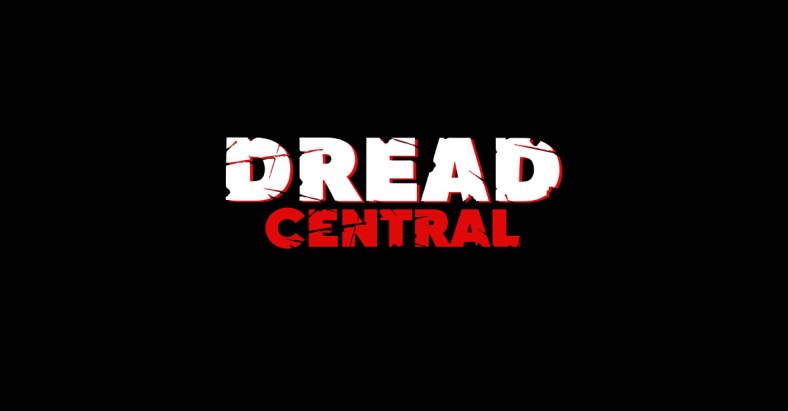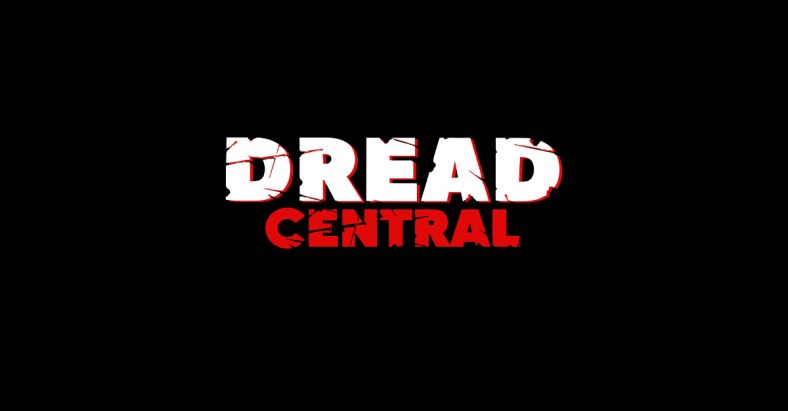Fantastic Fest 2019: THE GOLDEN GLOVE Review – Filthy Shock Horror Leavened With Humanity

Starring Jonas Dassler, Margarethe Tiesel
Written by Fatih Akin (screenplay), Heinz Strunk (novel)
Directed by Fatih Akin
The Golden Glove pulls from previously-banned shock cinema classics like Gerald Kargl’s Angst in a shared earnest observation of its subjects, while it’s cruel refusal to let the viewer opt out of participation recalls Michael Haneke’s Funny Games.
Fatih Akin’s tale is a light adaptation of Heinz Strunk’s novel of the same name, and it surrounds German serial killer Fritz Honka (Jonas Dassler), who prowled the streets of Hamburg’s red-light district in the 1970s. The Golden Glove is the bar Honka patronizes; bar patrons erupt in tears, en masse, upon hearing a love song playing on the jukebox. This is a nation of WWII survivors, a people longing for something they can’t or no longer have. Wrapped within it is the microcosm of Honka’s struggle to get any woman to give him the time of day. He works his way down the totem pole of attractive ladies at the watering hole until he lands on one lonely and desperate enough to accept his drinks before he lures them back to his place with the promise of booze and companionship for the night.
Right out of the gate, the production design deserves a grim nod. Akin makes heavy use of sleaze aesthetics that would make the film right at home in one of your various grindhouse theaters on 42nd street in the ’70s, playing alongside Bill Lustig’s Maniac. Fritz’s room is a decrepit den of filth. Lewd pictures of women litter the stained walls, and the soiled furniture is peppered with beautiful dolls. The end credits sequence of crime scene photos show production designer Katrin Aschendorf’s keen eye for historical accuracy; the interior setting of Honka’s attic living space is a fantastic replica. The dolls and smutty wallpaper are accurate as well and lend themselves to the idea that Honka sees women as things to be acquired and thrown away. Akin is aware of the pitfalls of objectification and uses it wisely, as one of many tools in the arsenal to paint a picture of Honka’s disturbia.
The story straddles the line between horror and exploitation by humanizing the women victims as tangible characters with desires and disappointments. Each eventual victim (and a few near-misses) is given screen time and space to spring from the scant paragraphs written about them in the true-crime books. One is a concentration camp survivor and shows the scars gained during her forced prostitution. Another gets into a theological spat with a nun about faith before going home with Honka. Margarethe Tiesel, in a heartbreaking turn as victim Helga Voss, channels a heartbreaking level of humanity all through her eyes, even half-closed from either drunkenness or fatigue with life entirely. At one point, a single tear rolls down her cheek when a stranger simply tries to connect with her. It’s a heavy moment that a scummier film wouldn’t dare allow, but Akin wisely opts out of milking dehumanization from the victims, all playing big-screen versions of Honka’s real-life kills. All have been through a lot, which makes their run-ins at The Golden Glove all the more appalling.
The camera does not shy away from dead bodies or various forms of assault, but cinematographer Rainer Klausmann ‘s lens keeps final death blows just out of frame, choosing instead to focus on the beast taking over Honka. It pays off; Dassler can hold the frame with ease. Further technical achievements include top-notch staging that constantly isolates the star from his environment and cheeky editing that match-cuts an unseen murder with kitchen butchery.
Akin’s film depicts the notorious killer as one cutting a pathetic silhouette, who can bash a woman over the head or strangle her to death but needs to take a swig of liquid courage and put on soothing music before dismembering the body. Jonas Dassler may be buried under a fair amount of prosthetics, but his performance is nothing short of disturbing. At once sniveling and raging, Dassler can go from meekly apologizing for startling a co-worker to furiously masturbating and taking out his sexual frustrations with phallic deli meat, all with a hunchbacked physicality and Joe Spinell-level expressiveness.
For all of its portrayal of a lone wolf in a lost era, the film doesn’t have much to say. It’s pub sequences with the castoffs of German society become repetitious within the 110-minute runtime and detract from the film’s overall pacing. The most fascinating moments feature Honka, but even then the profile fails to capture the desperate intensity of Angst‘s unnamed killer or the festering pathos of Henry: Portrait of a Serial Killer‘s titular psycho. Instead, we are left somewhere in between, in a space that doesn’t glamorize its murderer, but nor does it attempt to access his madness. That’s likely intentional; an early exchange between Honka and a bar patron has the psychopath bemoaning the idea that anything he does has to have a motivation or reason. But without any other substance in the wake of the ultraviolence, we’re left with nothing more than yesteryear heinousness and the grime of its aesthetics.
Craft-wise, The Golden Glove is a brutal triumph; it’s just not a resonant one. It lays no claim to any metaphors for loneliness in society, content to simply point out the loneliness and wrap it in the grotesque. The result would be pure, empty titillation were it not for the director’s choice to look away at the right moments and reserve more dignity for the victims than the subgenre usually allows. Still, it departs enough from the sleazy Video Nasty giants it would sit beside at the video store to make Akin’s film worth the run time and not just another cheap imitator.
-
The Golden Glove
Summary
The Golden Glove is a peculiar genre outlier, flirting with exploitation elements but making the conscious decision to endear itself to the victims while observing the killer. You’ll need a shower after watching this one.
Categorized:News


